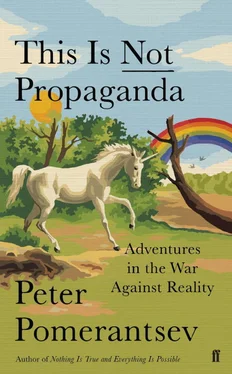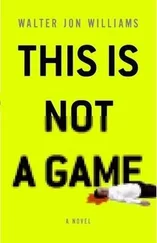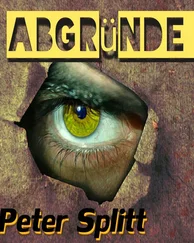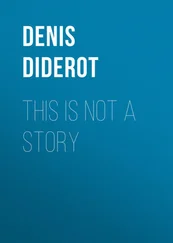In the airport we were guided to the ‘mother and baby’ waiting room. Lina was crying and didn’t want to go. I pushed her forward with my elbow and it came out rough so she cried even more. We were separated from the other passengers. ‘Main thing is not to worry,’ I told myself. ‘We have foreign visas. We’ve been stripped of Soviet citizenship. We’re foreigners now and that’s it.’ There was a man in a suit with his back to us when we walked into the room. For some reason I exclaimed, ‘Good day!’ to him in English. He paid no attention and began making calls. I could hear him say the names of our KGB interrogators from Kiev: Villen Pavlovich; Valeriy Nikoaevich. Then he mentioned the Belarusian town of Babruysk. They took us away in the evening. We walked towards the van: I with my wet shirt; Lina with her face smeared and puffy with weeping, the sleeping boy in her arms. ‘At least I don’t have to carry the bags,’ I thought. ‘So they will take us to Babruysk. They will be there already. Villen will have taken off with some woman. Valeriy will be working on chess puzzles, checkmate in four moves, knocking the pen against his lower teeth, yellow with nicotine, squinting…’
Our van rattled on the rough roads. We were squashed in the back into one wet, salty mound.
We arrived in Babruysk at night. In Babruysk they executed us by firing squad.
Igor
*
Igor penned this nightmare scenario a few weeks after arriving in Vienna, a way of communicating the fear he felt during the flight. All through their first weeks, months in the West Igor would still instinctively listen for the click of the KGB eavesdropping on the phone line, for the knock on the door.
It was the colours that struck Lina when they first landed: she was almost blinded by the searing yellow of bananas, burning oranges. As Vienna came into focus around her she regained a sense of order: the architecture, with its art nouveau twirls, was comfortingly similar to Chernivtsi and Kiev. Then she found herself thrown again by the sight of so many handicapped people in the streets: old people in wheelchairs, groups of children with Down’s syndrome. She struggled for an explanation. ‘Is this some sort of punishment for what they did in the war?’ she blurted out to Igor, even as she realised how nonsensical this idea was. Then she understood: in the utopia of the Soviet Union the disabled were locked away, hidden in horrible homes far from the city or trapped in apartments, censored.
We rented rooms in the dormitory of the Vienna Conservatory, so all these first impressions of oranges and children with Down’s syndrome and art nouveau stucco swirls were bound together inside the sound of strings and trumpets and pianos tuning up and practising scales, in a din of dissonance that would sometimes suddenly combine in harmony. Into this cacophony pulled up a large bright-blue Mercedes, out of which stepped a tall woman with a familiar face. It was Anneliese and she was here to guide us.
Anneliese was a German schoolteacher. She had visited Kiev and had got to know Igor and Lina. She had come to the USSR as a curious tourist, and left determined to help the dissident friends she made there. Now she had a plan to get us from Austria to Germany. She and one of her final-year pupils, Harold, had spent days researching the thick forest on the border and had mapped the quickest way to cross it by foot: they had it down to a brisk half-hour walk.
They drove the blue Mercedes to the border and Anneliese led us into the woods, while Harold drove on to meet us at the other side. Lina shushed me to be quiet. I stayed abnormally still. There was no path and soon everyone’s feet were drenched, and what was meant to take half an hour was taking over sixty minutes. Every snapping twig made everyone start with fear. Anneliese had lost her way, but both Igor and Lina kept up the pretence that she knew what she was doing. She was the one taking the risk: if she were to be caught smuggling us across the border, she would, at the very least, lose her job. But she knew how badly Igor wanted to stay closer to Kiev, Odessa and Chernivtsi, which he in turn saw as part of a greater Europe.
Then, just as their strength was fading, they emerged at the other side, back by the autobahn, and the blue Mercedes drove us further into West Germany, past villages, across dark forests and along by the castles on the broad, curving Rhine to Anneliese’s home village of Lahnstein, where she took Igor into the police station and he requested political asylum. If the policeman were to ask how we had made it into Germany, then Anneliese could have been in trouble. The policeman looked my father up and down, looked at Anneliese, and never asked the question. In 1978 West Germans were delighted to welcome political refugees from the Eastern bloc – proof their system was superior to East Germany’s Communism. The application for asylum would take a year, but in the meantime we would be given an apartment in Adolfstrasse.
As part of the asylum application Igor was ‘invited’ to the regional capital to be screened by the German and French secret services. They were meant to check whether he was a spy. Two young, polite and smiling officials asked him what he did, where he had studied, what he wrote. He answered, and then waited for them to begin a more thorough vetting. When none was forth-coming he became worried: the Europeans were so naive, the KGB would waltz pass them. Why hadn’t they tried to interrogate him properly?
Then the Americans asked him in for a chat as well. This time there was more intrigue: he had to go a bland office with no sign, where two men with crew cuts were waiting for him. The Americans tried to catch Igor out: how many stairwells were there at your work? How many floors? What could you see out of the window? Igor was relieved. At least someone was investigating him properly. It even sounded like they had people in Kiev who could double-check what he had told them. Maybe there was hope for the West after all. The men with crew cuts asked him whether he could tell them about his army service, the size and location of the unit. He told them he had taken a military oath of honour not to divulge such secrets. The Americans were from the security services themselves and nodded respectfully at this sentiment.
In Lahnstein, for the first time in his adult life Igor found he couldn’t write poetry. He couldn’t stop thinking about the friends he’d left behind. Some were now locked up in the USSR’s last camps for political prisoners in Mordovia and Perm. He picketed outside the Soviet consulate with placards demanding their release. He wrote essays that tried to evoke the world he left behind, the dramas of Ukraine so often ignored by Western readers, who knew only about Moscow and St Petersburg. ‘I have a motherland,’ he wrote, ‘and it remains within me forever. We are as inseparable as an eye and a tear.’
He described how they all felt revulsion at the Soviet invasion of Prague in 1968, how each of them could remember where they were that day. He wrote about the literary critic jailed for seven years who, during those years, had seen his wife exactly seven times, yet still wrote to her without a note of bitterness, merely asking her to send on new copies of Bakhtin. Igor wrote about the friends who woke up, read the morning newspaper and discovered that they were this morning’s story and had committed some awful crime. The composer who discovered he had ‘beaten up a construction worker in front of many witnesses right in the middle of Kiev’. Though the ‘worker’ didn’t exist, the sentence was very real. The Jewish activist who was informed that he had viciously beaten up a female nursery teacher. He discovered that he went so far as to break her leg while she was walking home, carrying a cake. When his friends searched through every nursery in Kiev they never found any teacher with any broken leg.
Читать дальше












